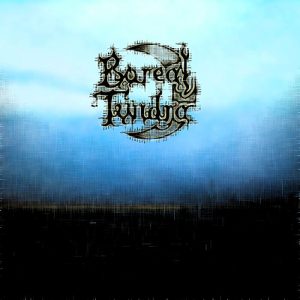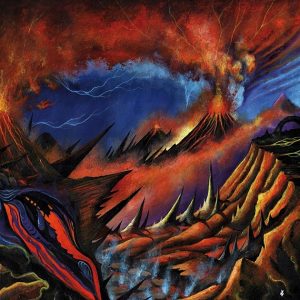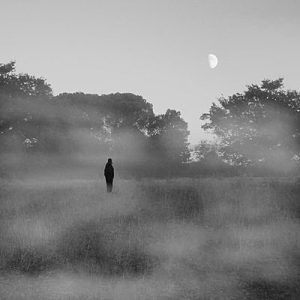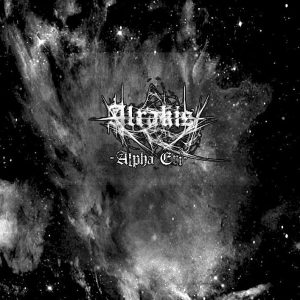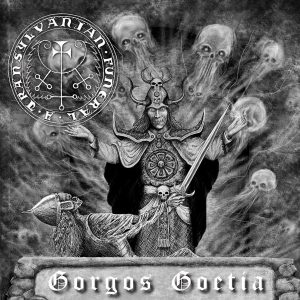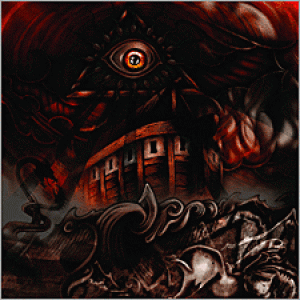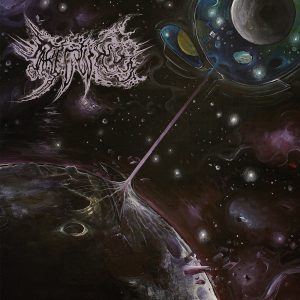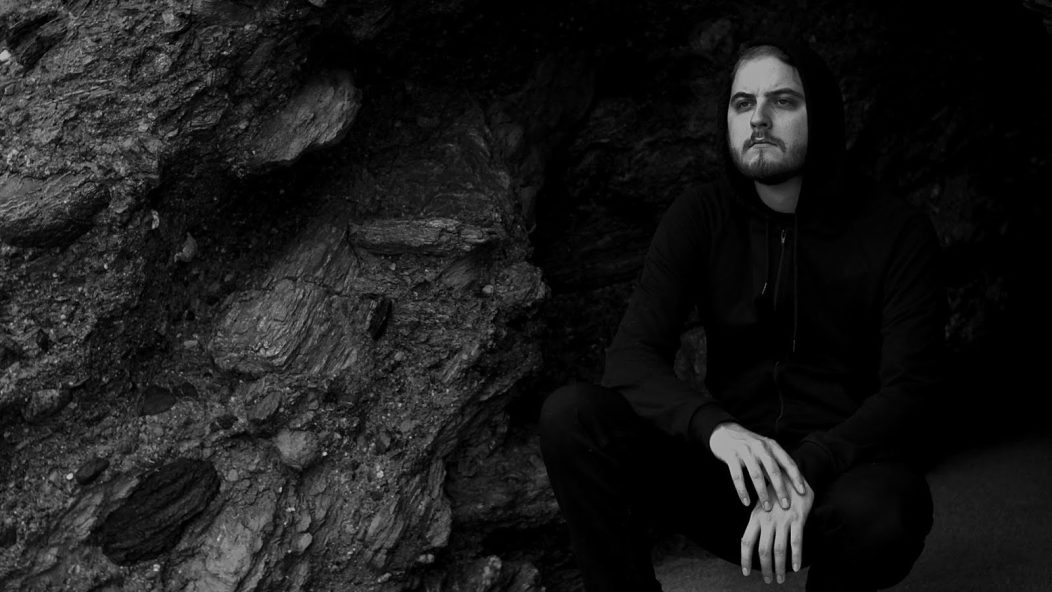
Top 10 One-Man Black Metal Bands of the 21st Century
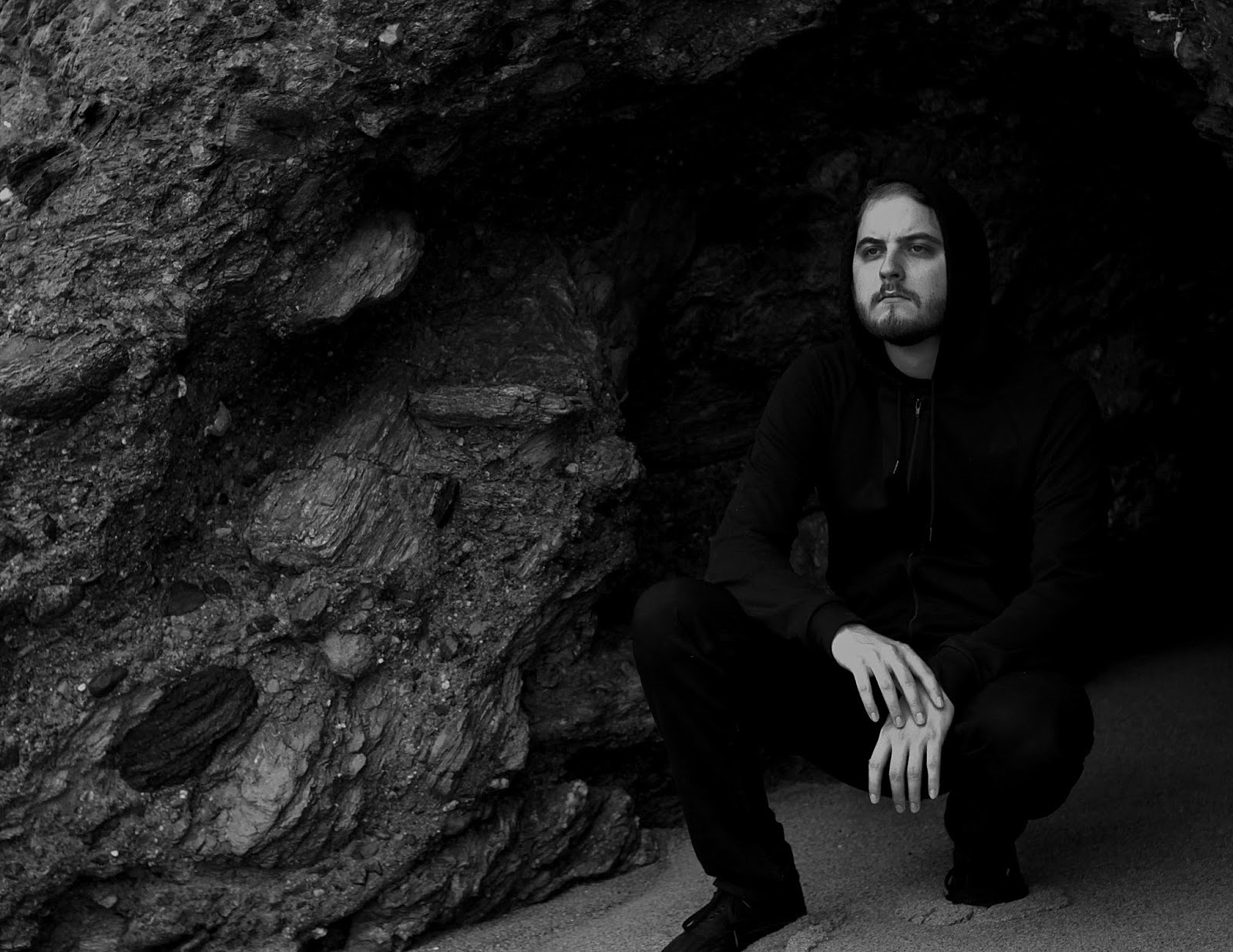
…
Black metal reaches its apotheosis as an art form when it is played by musicians with visceral, unapologetic disdain for the human condition, a natural love of solitude, and an understanding of how to translate these two feelings into sound. Rather than becoming unidirectional and limited when composed by one person, this style of music transcends artistic boundaries when one man takes it upon himself to become a vessel of fuliginous noise.
Black metal enthusiasts all remember giants like Burzum, Xasthur, Satanic Warmaster, Judas Iscariot and Paysage D’Hiver for leaving an enduring impression on the extreme metal underground; including these bands on the list would add precious little to a conversation about one-man black metal in 2016. However, now that music streaming sites and YouTube have democratized black metal, it is easier than ever than to scour the outcrop of one-man bands and unearth lesser known gems that are just as worthy of attention. Contemporary one-man black metal acts are a big part of the genre’s recent renaissance, but ten of these in particular have set themselves apart as a cut above the rest.
-Akosa Amenechi
…
Canada’s Boreal Tundra deserves a place on this list for replicating the atmosphere of Filosofem-era Burzum while still maintaining a compelling musical identity. There is a satisfying flow to 2014’s self-titled album and 2015’s sophomore effort, Schizophrenic Delusions. The minimalistic production style, sparse vocals, ethereal synths and pewter album art on both releases gives a sense of cohesion that many of Herrwulf’s contemporaries would be well disposed to take notes from. He doesn’t pull out too many bells and whistles, but what Herrwulf does do fantastically well is fuse the accoutrements of second wave black metal with an icy detachment as grim as the Canadian winter itself.
Alp’s songwriting sensibilities find the same sweet spot struck by the atonal fretboard aerobics of Imperial Triumphant and Dodecahedron, with each release of his displaying increasingly mesmerizing instrumental chops. The full-length, split, and EP Ecferus put out in 2015, as well as this year’s Pangaea, show astonishing ambition for a newcomer. Pangaea, to my mind, is a genre-defining album. What is most remarkable about this record is that while the tempos change on a dime and the tastefully intricate guitar leads impress me more every time I hear them, there is so much to Pangaea as a package. It is a concept album with poetic lyrics, phenomenally well executed production, and an excellent sense of pacing. The lyrical content, in particular, is of interest to me. The lyrics tell a story, possibly inspired by the writings of pre-socratic philosopher Anaximander, of the formation of the earth and its elements (land, air and ocean), the development of the human species and the eventual fallout between man and his environment that ensued when he decided to place himself above nature. Fascinating stuff.
July brought a pleasant surprise in the form of Shadow Projection. This site premiered the EP here, but for the most part it flew under the radar. Alp toned down the technicality significantly on Shadow Projection and instead trained his sights on creating wizened, mid-paced tunes with an unnervingly hypnotic edge to them. He is not afraid to experiment, which is an indicator that his future material will take the Ecferus sound to unpredictable avenues.
Brouillard (French for ‘fog’) is my favorite of the four bands signed to Distant Voices, a boutique label operating out of Southern France that releases curios from some of the most reclusive members of the black metal underground in artisanal, delicately-confected packaging. Everything about Brouillard, and the rest of the Distant Voices roster, is shrouded in mystery. For starters, the titular artist keeps himself totally anonymous and doesn’t maintain any sort of social media for the band. Although commercial inaccessibility isn’t unusual within this genre of music, it’s strange to watch Brouillard’s works drop out of the sky every so often, without so much as a word from anyone before he vanishes again without a trace. Most other artists on this list at least engage in some kind of PR.
Weirdly enough, ‘Brouillard’ is the most apt descriptor of the band’s music, which is so richly textured as to sound like the instruments are buried under a blanket of fog. The hoarse vocals duck and weave, sometimes nestling beneath the layer of haze and at others rising above it to fill out the lo-fi wall of noise. Brouillard also has a habit of carving out space within each track for interludes. These congeal nicely with the atmospheric black metal sections and build depth into the band’s lengthy songs. I extracted a wealth of replay value from the band’s two full-length albums and two splits by listening to them pensively and permitting my thoughts and feelings to be guided along by the ebbs and flows of each track. Most of the tracks blend together (in a good way), so they should mimic an unbroken stream of consciousness.
In many ways, I consider Alrakis the ‘big brother’ of Markov Soroka’s bedroom project Aureole. A1V parlays the same basic elements of ambient black metal into more memorable musical simulations of wandering the cosmos than those of his Ukrainian peer. A1V creates dreamy soundscapes out of a limited selection of chords, pulsating drums, plangent screams and droning synths. The synths, above all other things, elicit a grand sense of scale that defines Alrakis’ sound. A1V uses synths as the pivot around which all other aspects of his compositions turn, using subtle shifts in key and rhythm to alter the mood of the music in a moment’s notice. As simple as this sounds, perfecting the use of the synthesizer is a skill to be mastered; many artists (Nachtzeit of Lustre springs to mind) just haven’t quite got the hang of it. The wait for Alrakis’ next album continues to agonize, but 2011 opus Alpha Eri mitigates the long dry spell.
Sleepwalker at one point ran the record label/distro Forbidden Records and the fanzine Forbidden Magazine on his own in addition to his writing and recording responsibilities in A Transylvanian Funeral. The band’s first two full-length albums, 2009’s self-titled and The Outsider (2010), are perhaps a couple of the most underappreciated in recent USBM history. They are both packed with earworms inspired musically by Scandinavian second wave black metal and lyrically by both the occult and the Cthulhu Mythos. These first two LPs are full of unfettered, maniacal energy; more than anything else, Sleepwalker’s high octane drumming and the demonic chants that abound in more than a few songs convey the type of intensity that evokes parallels to the black metal of yesteryear.
Faster paced songs in the A Transylvanian Funeral discography, such as “Circle of Disease”, “We Shun the Light”, “Winter’s Worm” and “To Die In the Dark” are pregnant with this type of energy and less pacey tracks such as “Lunacy” and “Ways of the Magi” don’t dawdle either. The third and final A Transylvanian Funeral record Gorgos Goetia is still very good, but only ‘Cold Blood and Darkness’, ‘Night Hags’ and ‘The Supreme Rite of Transmutation’ manage to transmit the sort of potency that runs rampant throughout the two previous recordings.
Wolves In The Throne Room left an indelible stamp on atmospheric black metal a decade ago with their debut A Diadem of Twelve Stars, and not just for the vertiginous standards that album set. The release of Diadem later brought with it a slew of comparisons to the enigmatic San Franciscan five-piece Weakling, whose only album Dead As Dreams is considered an overlooked classic. As the law of unintended consequences (and irony) would have it, Diadem’s legacy redounded through a rash of Wolves In The Throne Room clones. One could be forgiven, therefore, for chancing upon A Diadem of Dead Stars and rolling one’s eyes.
The Pilgrim finds common ground with Cascadia’s favorite black metal sons: this is evident in his facility for channeling the voice of mother earth through a battery of unorthodox tones and stringing together the soothing riffs that The Mist Bearer (2014), The Mist Bearer pt. II (2015), Profaning the Ground (2015) and Kingdoms bathed in Golden Light (2016) feature aplenty. Over the course of longer songs, The Pilgrim builds a cyclical structure into every aspect of the music. Much in the same way that puddles in the natural world evaporate when the sun drifts into view from behind the clouds, so The Pilgrim’s harsh vocals and distorted chord progressions vaporize when resplendent keyboard lines and acoustic strumming gradually rise to the forefront. These refreshing transformations within songs create a mood that is totally unbound from black metal’s gloomy, antipathetic core.
Alexander von Meilenwald’s doom-infused brand of black metal rewards patience and attentiveness to detail. At times, he employs conventional black metal riffing against the backdrop of furious blast beats. His bilious vocals cut through the mix like a buzz saw, before giving way to ambient passages and ominous, distorted voices from the bowels of hell; many songs feel like two or three rolled into one because of how unpredictable they become. Navigating this figurative labyrinth isn’t too much of a chore; it becomes easier after the first listen of each album and consistently satisfying thereafter. Tracks such as ‘Soil of the incestuous’ (Rain upon the Impure) and ‘Blood Vaults (II – Our Despots Cleanse the Levant)’ off Foulest Semen of a Sheltered Elite embody these characteristics in full flight, as they veer relentlessly between the sonic extremities previously described.
The lyrics across all of The Ruins of Beverast’s albums are as varied and thoughtful as the music they accompany. Contained therein are von Meilenwald’s reflections on decisive battles of the First World War and iconoclastic attacks on the Catholic Church’s unreconstructed doctrines. All in all, the lyrics are just the finishing stroke on some of the most compositionally elaborate and intellectually advanced black metal around.
Austin Lunn is a staggeringly prolific composer, and an excellent one at that; with 14 original releases (and two compilation albums) to the Panopticon name in the past 9 years, it would be easy for him to reach a creative cul-de-sac, or at least take more than a year to come up with fresh material.
The secret to Lunn’s productivity might just lie in the fact that he approaches black metal from a different angle to most. Panopticon’s sound marries the tranquil elegance of bluegrass and folk music with the relentless aggression of black metal. Label mates Fall of Rauros and Alda do an admirable job of combining folk elements with black metal in their music, but the potential for ‘Blackgrass’ to really morph into a genre of its own was never fully realized until 2012’s much exalted Kentucky. In my view however, it is Roads to the North that showcases Lunn at the peak of his powers. On this record, he returns to his elemental roots as a musician, incorporating the violin, banjo, dobro and the American Indian flute whilst paying homage to northern European melodic black metal.
Roads to the North is an album of contrasts; a tussle between the mellow and the overdriven, the harmonious and the cacophonous, the subtle and the unambiguous. Above all, it is an artistic statement from a man who, even with an incredible back catalogue behind him and new priorities in his life outside of music, is willing to reinvent himself and bring something new to the table. One of the songs that survived from the Roads to the North writing sessions but was saved for a later split, is a piece Lunn wrote for his son. In a similar vein to the tracks that were used for Roads, ‘Håkan’s song’ is stirring, delightfully heavy, and as fitting a reminder as any that musicians of his ilk can handle softer themes without compromising on anything that makes extreme metal so unique.
Operating from his cubby-hole somewhere in Greece’s capital Athens, Ayloss has been unassumingly churning out masterpieces for his main project Spectral Lore for a decade. To a greater extent than his countryman The Pilgrim, he delves into black metal’s vast ocean of untapped potential and challenges listeners to revise their expectations of what’s possible in this genre at every turn. Ayloss has pretty much torn apart existing black metal conventions and authored his own version of the genre’s playbook. Ambient black metal fused with oriental music? He has that covered; just listen to his latest release, the EP Gnosis released during the back end of last year. Video-game style dungeon synth weaved into a tapestry of cosmic-themed sound effects? He has that style on lock too–check out the Voyager EP released in mid-2015.
Ayloss’ material can seem daunting and inaccessible from afar- his four full-length albums average around 80 minutes in length. He just doesn’t do half measures, and the amount of genres he ranges over with his music demands compositions of gargantuan length. In this regard, it’s easiest to think of Spectral Lore as black metal’s answer to Between the Buried and Me. With its kaleidoscopic time signatures and rhythms, some of Spectral Lore’s more progressive material exudes the same vibes as BTBAM’s Colors, if only tangentially. The second half of Spectral Lore’s discography is essential black metal listening, but dive straight into Sentinel and III exclusively if you’re hunting for more immediately identifiable highlights.
Jacob Buczarski announced himself in fine fashion back in 2011, wasting no time in gracing us with the eponymous The Sea Which Has Become Known after Mare Cognitum was formed. On this album, he lays out a clear strategy for success, which is to transport the listener into an otherworldly realm with a multi-layered, counterpoint driven guitar assault, vocals resembling a serpentine hiss and a swirling torrent of percussion.
The following year saw a second independently released full-length from this band. An Extraconscious Lucidity raked in praise by the bushel for being a more focused, self-contained overall package than its predecessor, and on its heels came a split with a certain Spectral Lore. The next LP, entitled Phobos Monolith, is yet another atmospheric black metal tour-de-force, but in different respects as it is veritably more broody and solemn than previous Mare Cognitum output.
Buczarski recently found the crest of another wave with Luminiferous Aether, which was released to acclaim in September (and diverted attention from August’s brilliant, if low-key split with Aureole). He takes the trouble to address some of the weaknesses that slightly detracted from previous albums; he better enunciates his vocal delivery, and the bass playing sounds more dynamic compared to the older stuff. Thankfully, the genius at the helm of this project is showing no signs of slowing down, barely giving his listeners time to appreciate just how special he is and to hope that the well from which he draws his unexampled creativity is as bottomless as it appears.
